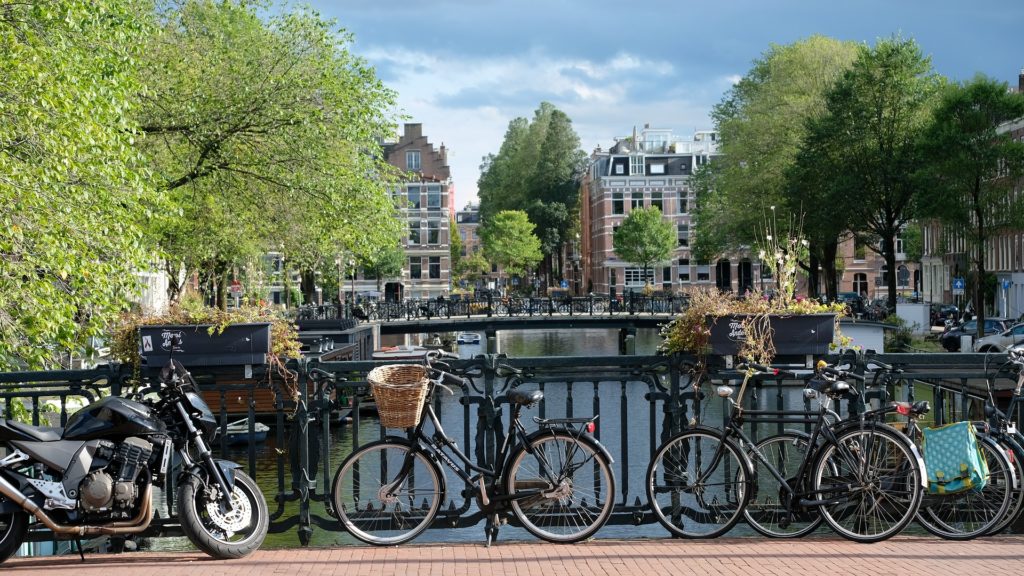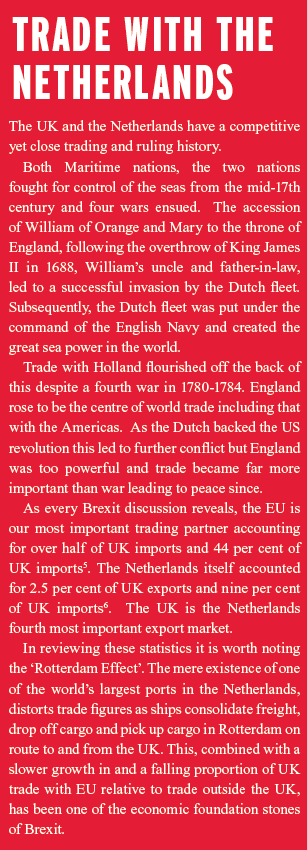
Roger Williams explores the Netherlands for the possibility of finding a trade partner
I have kept a soft spot for the Netherlands since my first rugby tour there. Like us, the Dutch have a great love of sport and fair play. As well as football, they have taken to cricket and rugby.
However, I particularly liked playing there because they seemed to have mastered neither cricket nor rugby and were generous hosts.
Indeed, their lack of determination to win, coupled with little jealousy, made bringing back members of the touring party more difficult each time we went.
Coupled with this generosity is stature, everyone is tall. Also nearly everyone has an ability to effortlessly shift seamlessly from one language to another, to speak English, Flemish, French, Spanish and German.
In business, our best overseas sales rep was Dutch and fulfilled the caricature perfectly, except he was (and remains) very competitive and had a strong distain for losing.

Calling the Netherlands ‘Holland’ is a little like calling the UK ‘Britain’. Holland actually refers to only two provinces of the Netherlands. Like the UK, the Netherlands is densely populated.
A small country geographically, covering only some 16,000 square miles or one-sixth of the area of the UK, it has a population of over 17 million, one-quarter of our population.
The capital of the Netherlands is Amsterdam, however the International Court of Justice and seat of government are situated in The Hague. Germany borders the Netherlands to the east and Belgium is to the country’s south. The coastline to the north and west is 270 miles long, though sand dunes and dikes take up over 40 per cent of this.
In common with the UK, the Netherlands has a great maritime and trading history. This has resulted in its main port, Rotterdam, being the world’s busiest port until 2004, when it was overtaken by Singapore and subsequently Shanghai and other Chinese ports.

It remains Europe’s largest, however and, fulfilling its major role in transfer shipments, handles a prodigious number of containers, placing it just outside the world’s top ten container ports.
Situated behind the port, are many refineries and petrochemical production and storage facilities. So naturally, petrochemical and container shipments dominate traffic in and out of the port.
The Netherland’s economy is less than a third of the size of the UK’s. Although famous for flowers and bulbs, cheese and bacon, agriculture and fishing account for as little as two per cent of the Dutch economy.
The main businesses and exports of the Netherlands are in fact machinery, metal-working, high technology, chemicals, refining and food processing.

Dutch citizens are wealthy but like the UK and France it only has one person in the top 100 wealthiest people in the world. She is the heiress to the Heineken brewing empire. Income per capita places the Dutch in 14th place in the rankings, two places below the US and three places above Germany, well ahead of the UK in 28th and France in 29th.
Due to the urbanisation of the Netherlands and strict gun laws which require land ownership to hunt, shooting game is largely restricted to farmers and the wealthy, if not aristocratic, game shots. It is estimated that only two out of 100 people in the Netherlands shoot, compared with four per cent in the USA.
Those who wish to hunt deer in the Netherlands must pass a hunters safety course to which the granting of a licence to hold a rifle is linked. It takes six months of study, passing a theoretical exam, a thorough shooting exam and a practical field and safety exam.
The estimated cost of the courses and exams is in the thousands of pounds. On top of this you must either have owned the land on which you shoot for six years or be a member of a syndicate which owns the land. This latter requirement is why one frequently encounters Dutch guns shooting driven pheasant, boar and deer in other European countries.

(©Wikicommons: Fotograaf Nick van Ormondt)
Target shooters must belong to a shooting club before they can own a firearm. There is no power limit for airguns but for certain clubs and airgun shooting disciplines, the UK’s 12ft/lb limit is adhered to.
Following a ban on lead shot, airgun shooting ranges have lead collection boxes for missed shots. Some airgun clubs are restricted to non-toxic pellets.
The restrictions on firearms ownership, the wealth of the participants in field sports plus a lead ban, have contributed to a relatively poor market for all but the top end of field sport products and firearms in the Netherlands.
This ‘top end’ bias is seen in the fabulous skeet, trap, clay pigeon ranges. De Eiledenberg International Shooting Range is a good example with facilities to match the best worldwide, offering additionally, a 50-metre running boar range like Bisley.
Business is well-structured in the Netherlands and, like their social scene, tends to be more formal. An invitation to dinner is not given lightly and is generally offered weeks if not months in advance.
No guest would arrive without flowers or the like. In such an environment, cold-calling is not a good idea. Introductions and appointments are essential, preceded and followed by written material and emails. As with many other European countries, a resident distributor is essential for success.






Comments are closed